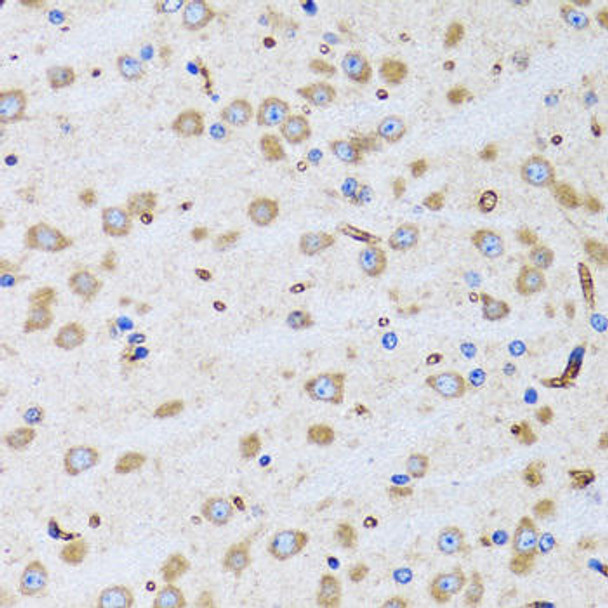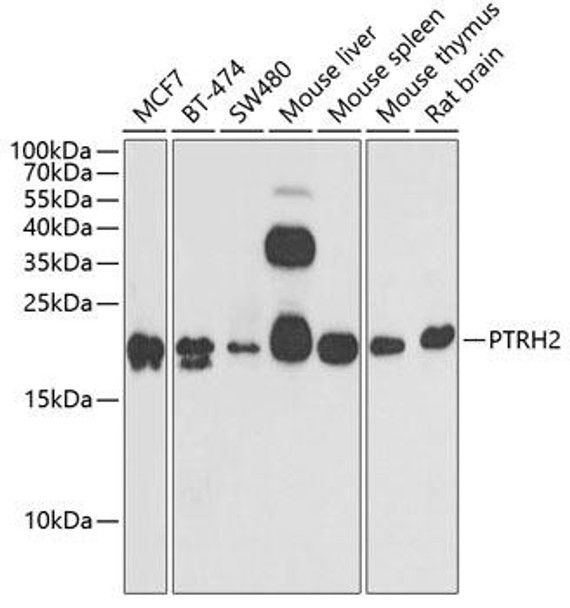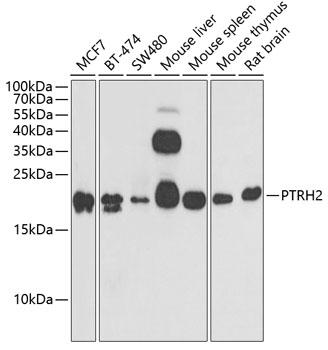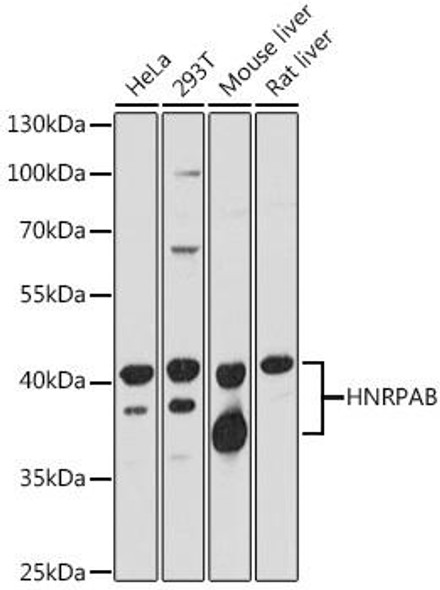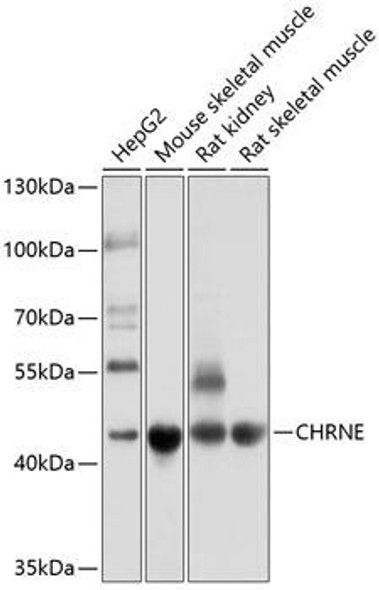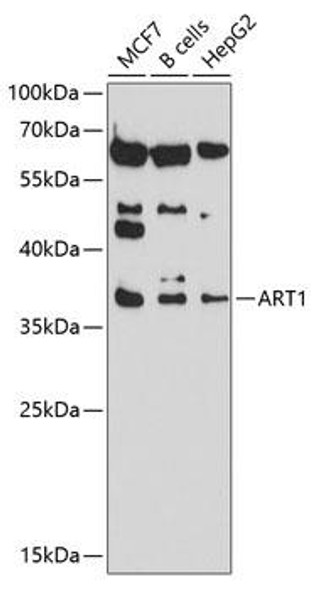Description
PTRH2 Rabbit Polyclonal Antibody (CAB6466)
The PTRH2 Polyclonal Antibody (CAB6466) is a valuable tool for researchers studying the PTRH2 protein, which is involved in mitochondrial homeostasis and metabolism. This antibody, generated in rabbits, is highly specific to human PTRH2 samples and has been validated for use in Western blot applications.PTRH2 plays a critical role in maintaining mitochondrial function and energy production, making it a key player in cellular metabolism and overall health. Dysregulation of PTRH2 has been linked to various metabolic disorders and diseases, highlighting the importance of studying its function and regulation.
By using the PTRH2 Polyclonal Antibody, researchers can accurately detect and analyze PTRH2 protein levels in different cell types, providing valuable insights into its role in mitochondrial function and metabolism. This antibody is an essential tool for studies in the fields of metabolism, bioenergetics, and mitochondrial dysfunction.
| Product Name: | PTRH2 Rabbit Polyclonal Antibody |
| SKU: | CAB6466 |
| Size: | 20uL, 100uL |
| Isotype: | IgG |
| Host Species: | Rabbit |
| Reactivity: | Human,Mouse,Rat |
| Immunogen: | Recombinant fusion protein containing a sequence corresponding to amino acids 40-179 of human PTRH2 (NP_057161.1). |
| Sequence: | LPKS KTSK THTD TESE ASIL GDSG EYKM ILVV RNDL KMGK GKVA AQCS HAAV SAYK QIQR RNPE MLKQ WEYC GQPK VVVK APDE ETLI ALLA HAKM LGLT VSLI QDAG RTQI APGS QTVL GIGP GPAD LIDK VTGH LKLY |
| Tested Applications: | WB IHC-P IF/ICC ELISA |
| Recommended Dilution: | WB,1:500 - 1:2000 IHC-P,1:50 - 1:200 IF/ICC,1:10 - 1:100 |
| Synonyms: | PTH; BIT1; PTH2; PTH 2; CFAP37; IMNEPD; CGI-147; PTRH2 |
| Positive Sample: | MCF7,BT-474,SW480,Mouse liver,Mouse spleen,Mouse thymus,Rat brain |
| Conjugate: | Unconjugated |
| Cellular Localization: | Mitochondrion. |
| Calculated MW: | 19kDa |
| Observed MW: | 19kDa |
The protein encoded by this gene is a mitochondrial protein with two putative domains, an N-terminal mitochondrial localization sequence, and a UPF0099 domain. In vitro assays suggest that this protein possesses peptidyl-tRNA hydrolase activity, to release the peptidyl moiety from tRNA, thereby preventing the accumulation of dissociated peptidyl-tRNA that could reduce the efficiency of translation. This protein also plays a role regulating cell survival and death. It promotes survival as part of an integrin-signaling pathway for cells attached to the extracellular matrix (ECM), but also promotes apoptosis in cells that have lost their attachment to the ECM, a process called anoikos. After loss of cell attachment to the ECM, this protein is phosphorylated, is released from the mitochondria into the cytosol, and promotes caspase-independent apoptosis through interactions with transcriptional regulators. This gene has been implicated in the development and progression of tumors, and mutations in this gene have been associated with an infantile multisystem neurologic, endocrine, and pancreatic disease (INMEPD) characterized by intellectual disability, postnatal microcephaly, progressive cerebellar atrophy, hearing impairment, polyneuropathy, failure to thrive, and organ fibrosis with exocrine pancreas insufficiency (PMID: 25574476). Alternative splicing results in multiple transcript variants encoding different isoforms.
| Purification Method: | Affinity purification |
| Gene ID: | 51651 |
| Storage Buffer: | Store at -20℃. Avoid freeze / thaw cycles.Buffer: PBS with 0.02% sodium azide,50% glycerol,pH7.3. |

